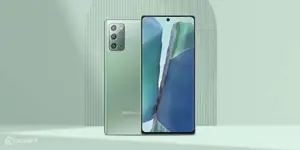Indian smartphone consignments have seen a delineation by 48% in Q2 2020 due to the Coronavirus outbreak condemning the government to impose a lockdown across the nation. Moreover, the increasing tension between India and China, has resulted in extended duty check on ports and airports on the consignments received from imports leading to the shortage of mobiles in the country, thus lower sales by 30-40% in July 2020.
Also Read: July Smartphone Sales Down 30-40% Due To Import Hurdles And Production Delays
This is after the Indian market saw an increase of 4% in Q1 2020 but met the steep decline due to the pandemic. Global shipment statistics have to reveal that there was a 13% decline as the first quarter saw less than 300 million units being shipped across the globe.
The reports of second-quarter shared by Canalys demonstrate that 17.3 million shipments were impacted as the local production suffered due to the pandemic. Hence, the country witnessed 48% lesser shipments. Madhumita Chaudhary, an analyst at Canalys said, “While vendors witnessed a crest in sales as soon as markets opened, production facilities struggled with staffing shortages on top of new regulations around manufacturing, resulting in lower production output. The fluidity of the lockdown situation across India has had a deep-rooted effect on vendors’ go-to-market strategies.”
Also Read: Samsung Galaxy Note 20 Surfaces In 360-Degree Render Ahead Of Launch
Smartphone shipments down in India
Xiaomi remains the game player by being at the top in the Indian smartphone market with a 30.9% market share and accounting shipment of over 5.3 million smartphones in Q2 2020. Vivo ranks second, shipping 3.7 million units, and Samsung stand at third in the list with covering a milestone of 2.9 million shipments.
“Vendors are driving the message of ‘Made in India’ to consumers and are eager to position their brand as ‘India-first.’ Despite the sentiment, the effect on Xiaomi, Oppo, Vivo, and Realme is likely to be minimal, as alternatives by Samsung, Nokia, or even Apple are hardly price-competitive,” said an analyst at Canalys, named Adwait Mardikar.
Also Read: Realme 6 And Realme X2 Get New Indian Variants
Reportedly, Apple has remained the least impacted smartphone brand with shipment only down by over mere 250,000 units in the second quarter of 2020.
Two smartphone market tracking organizations, Counterpoint Research and International Data Corporation reported that both the online and offline channels of sales are short of stock of the recently launched and “available for sale” smartphones for almost all the companies. Furthermore, they added that the rollover impact of custom clearance delays which initiated in July may extend to impact the sales of July. One of the leading shipment carriers agency has revised its April-June Shipment analysis, concluding a downward learning graph from 16 million units which were predicted earlier.
The research director at Counterpoint, Neil Shah said, a standard process of shipment of core material required, there assemble, and distribution takes approximately three-four weeks on average. Regional lockdowns will lead to furthermore delays in each process.
Adding more delays to the situation, the government of India has strictly made it essential for the inspectors to make sure 100% manual checking of Chinese cargo at the ports and airports adhere between June 22-30. This led to a 10-day backlog in supplies of smartphones and their parts.
Associate research manager at IDC, India – Upasana Joshi said “Supply constraints continue to prevail with components stuck at the ports, especially for China-based vendors, and factories still running at less than half the capacity. The situation will take longer to improve than expected earlier, with supply bottlenecks clubbed with anti-Chinese sentiments.”.
The smartphone shipments down in India resulted due to the pandemic outburst that has led the manufactures to hold back the production and distribution and the buyer from making an expense on non-essential commodities. Looking at the purchase pattern, analysts have predicted that the replacement or exchange cycle of the smartphone may become increasingly longer.
Also read: Best Mobile Phones Under 50,000
















